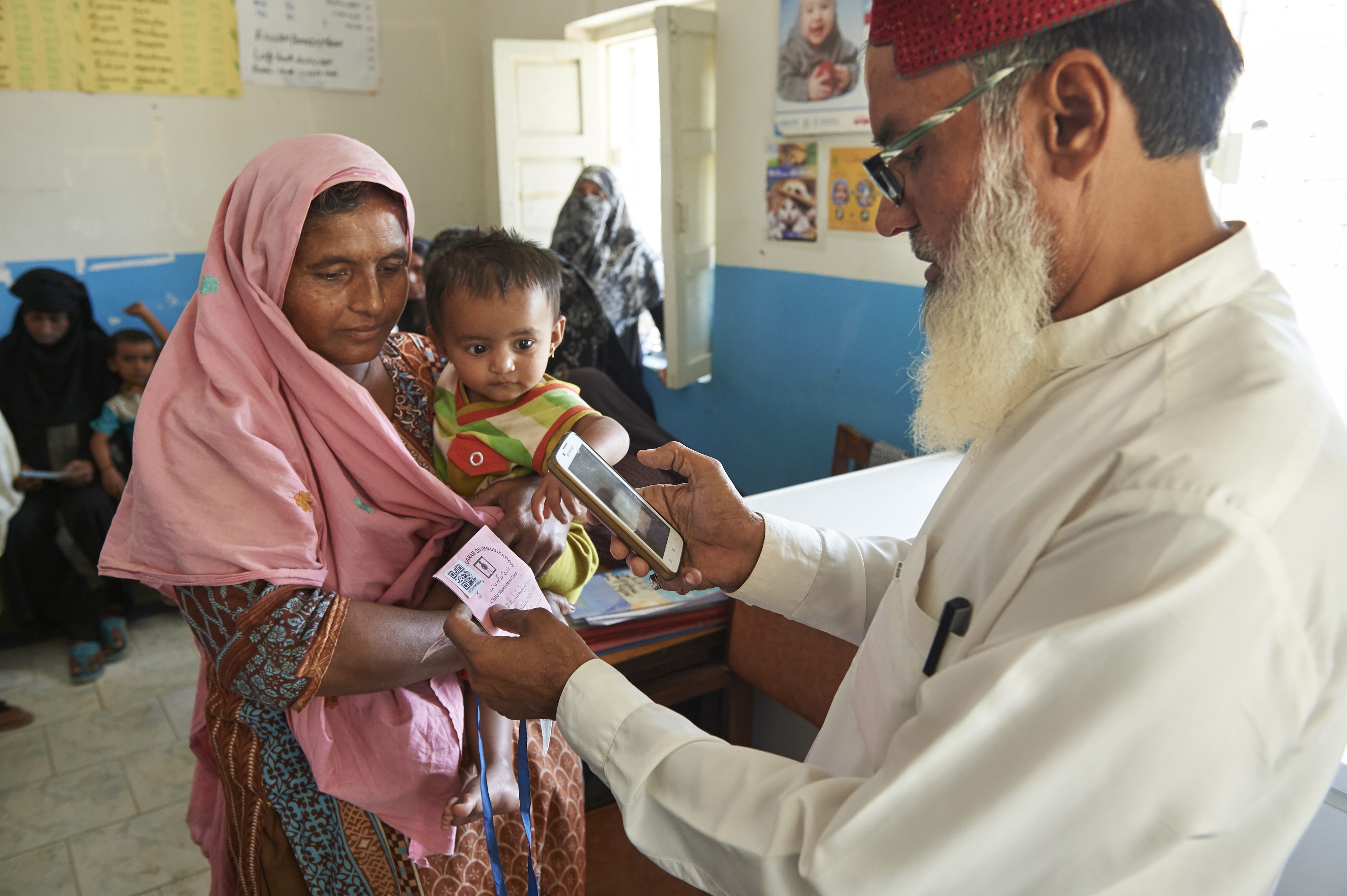How two innovations are using data to drive impact in vaccines.
By Lilith Foster-Collins
Apr 26, 2024
Over 1.5 million children die each year from vaccine preventable diseases such as diphtheria, tetanus, pertussis, influenza and measles.
One of the greatest tragedies is that many children suffer from vaccine-preventable disease in areas where immunisation is available.
The development challenge that organisations and governments face is not just the provision of vaccines, but ensuring that vaccines reach those in need and that people follow through with complete immunisation schedules.
Key to solving this problem is the role of data. At GIF, we take an evidence-based approach to our investments – and evidence and research are proving to be key in the fight for universal vaccination. During World Immunization Week we highlight how two of our investments are using data to achieve this.
1. CCTs (Conditional Cash Transfers) for Immunisations
In many countries higher immunisation rates in early infancy dip as children get older and children do not receive the full schedule of immunisation. In Pakistan, an estimated 9-13 million children under the age of two have not received full immunisation coverage.
CCTs for Immunisation approached the issue of immunisation in Pakistan using an innovative behavioural science approach.
GIF awarded International Research and Development (IRD) a $856,215 Test and Transition grant in 2016. The grant was to conduct an experimental study in Karachi, Pakistan which aimed to identify what kind of cash incentive best increased immunisation completion rates.
The programme tested several different mechanisms including when participants receive the incentive, incentive lotteries and different forms of payment such as airtime or mobile money, to identify what the most cost-effective contribution was.
The randomised evaluation was concluded in 2020, and findings show small CCTs (USD 0.8 to 2.4) improve both immunisation coverage and timeliness with a cost as low as USD 18 per additional fully immunised child. SMS reminders without incentives also yielded significant gains in timeliness of measles vaccination.
Based on this research, the Government of Sindh has since committed to scale up CCTs for immunisation in seven high-risk districts. This programme was launched in January 2021 and will scale to benefit around 1.2 million 0-23 months old children in these high-risk districts annually.
The innovation demonstrates the power of data in increasing the uptake of vaccines and reducing preventable deaths. By increasing the number of children who finish their vaccination schedule, CCT’s for Immunisation will directly save lives and increase herd immunity.
2. Simprints
Simprints is another GIF investment that is using data to address the issue of vaccinations.
Formal identity is a key challenge in getting vaccine programs to work effectively. The World Bank estimates that 1.5 billion people worldwide lack any type of formal identification.
This restricts access to healthcare provision such as vaccination which costs lives, as well as reducing healthcare efficiency, for example through redundant vaccinations. Identification is key to getting vaccines to the people who need them.
Simprints has developed a suite of mobile biometric hardware and software tools (initially focused on fingerprints) to address the challenges of identification and verification of people who lack formal identity. The team has developed an open-source fingerprint system for the world’s toughest settings that is 200%+ more accurate and 4x cheaper than existing solutions.
GIF initially provided a $200,000 grant to fund the development and implementation of a sustainable delivery model, and later provided follow-on funds, in the form of a £2.1m revolving credit facility.
Access to identification provides healthcare providers, including immunisation schemes, with essential information and data to allow vaccination programs to work more effectively and access the most isolated or disenfranchised populations. This has the potential for greater immunisation rates and more successful use of funds in combating preventable disease.
The Power of Data
CCTs for Immunisation and Simprints both demonstrate that if we are to reach universal vaccination and reduce preventable deaths and illness, evidence and data-led thinking are the way to go.
